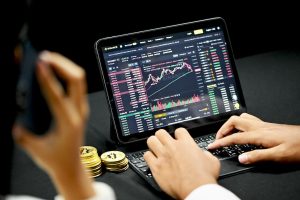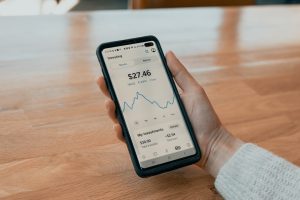Forex trading is an ever-evolving industry, and the innovations keep coming. One of the most significant advancements in forex trading is the use of leverage. Leverage has become a popular tool among traders, especially those who have limited capital. In this article, we will explain what leverage is in forex, its advantages, and its risks.
What is leverage in forex?
In forex trading, leverage is the ability to control a larger amount of money in the market with a relatively small amount of capital. In other words, it is the ratio of the trader’s funds to the size of the trade. Leverage is usually expressed as a ratio and is commonly referred to as the “leverage ratio.”
For instance, a trader with $1,000 in their trading account can leverage a position up to $100,000 with a 1:100 leverage ratio. This means that for every $1, the trader invests, the broker lends them $100 to trade with.
Advantages of using leverage in forex
1. Increased trading power: Leverage allows traders to control a larger position in the market than their capital would allow. This gives traders the ability to make more substantial profits from small price movements.
2. Lower capital requirements: With leverage, traders can enter the market with only a small amount of capital. This makes forex trading accessible to traders with limited funds.
3. Diversified trading opportunities: Leverage enables traders to diversify their trading portfolios, as they can open multiple trades with different currency pairs or other financial instruments.
4. Reduced transaction costs: With the larger position sizes enabled by leverage, traders can reduce their transaction costs as they pay fewer spreads and commissions.
Risks of using leverage in forex
1. Amplified losses: While leverage can amplify profits, it can also magnify losses. A small price movement against the trader’s position can result in significant losses that exceed their initial investment.
2. Margin calls: Leverage requires traders to maintain a certain margin level in their trading accounts. If the market moves against their position, the trader may receive a margin call from the broker, demanding additional funds to maintain the position.
3. Overtrading: Leverage can lead to overtrading, as traders may be tempted to open more significant positions than they can manage. This can lead to emotional trading decisions, which can result in significant losses.
4. Limited risk management: Leverage can limit the trader’s ability to manage risk effectively. As trades become more significant, it becomes difficult to use stop-loss orders effectively, and traders may find it challenging to exit positions quickly.
Conclusion
Leverage is a powerful tool that can increase a trader’s trading power and provide access to the forex market for traders with limited capital. However, it also carries significant risks, and traders must understand the risks involved and manage them effectively. It is essential to have a trading plan, risk management strategy, and adequate knowledge of the market before using leverage in forex trading.






